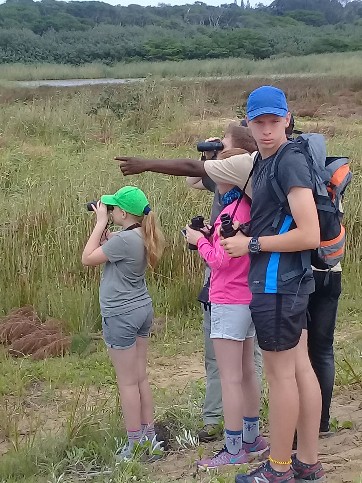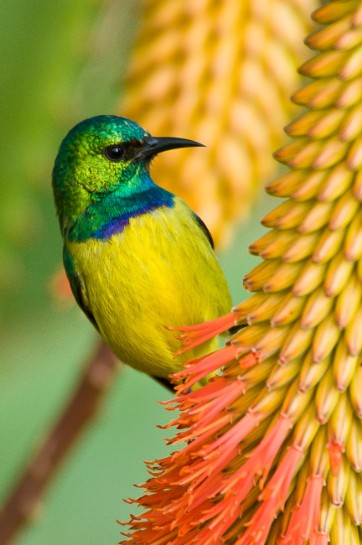Zulu Birding
Past Events
Bob Bishop and his wife, Linda, visited South Africa a few years ago and had some wonderful experiences. On the coast of KwaZulu-Natal north of Durban is an amazing resort called St Lucia. It lies on a river between the national parks of iSimangalisu (a coastal wetland park) and Hluhluwe game reserve. After dark the streets empty very rapidly as hippopotamuses come into the town to feed, not your average holiday experience. As well as an extensive range of mammals, the area is a paradise for birdwatchers. There are over 500 species of bird native to the local area. However, without a guide it is not easy to find them and when you do see them they are not easy to identify. In advance of their holiday Bob booked a birding trip with a local guide. This involved getting up at 5.30 am and walking into the leafy heart of the town and then into the neighbouring forest following the tracks left by the hippopotamuses. The guide, Themba Mthembu, was astonishingly talented. Without binoculars he could identify numerous birds at great distance, leading visitors to the best places to see them, and even imitating their calls to attract them into the area. During a pause in the tour he told Bob a bit about himself and about his project to create a Zulu Birding Centre in St Lucia. The aims of this centre are:
- To educate local school children about their environment
- To train new bird guides giving employment opportunities to local people
- To encourage local people to develop their land to encourage bird life providing a potential income source
He already has the building and is well on the way to achieving his goal but progress is limited by the amount he raises from his guiding. We devoted some of the funds raised in Bob's year as President to helping him with his project, which seemed to us totally admirable. With our help Themba now has a thriving wildlife business, employing many young men and women from the local area who might have difficulty finding employment.


